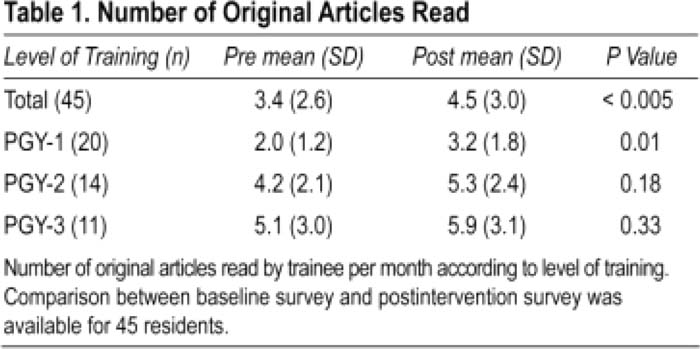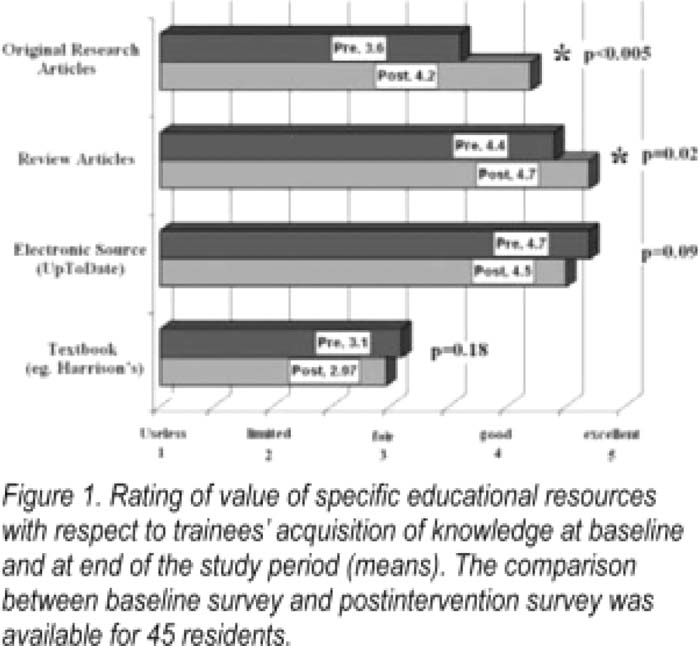Background:
Hospitalists play an increasing role in resident education. The acquisition of new knowledge is a primary goal of residency training. Retrieving and retaining influential primary and secondary medical literature can be challenging for house officers. We set out to investigate the effect of a USB drive loaded wilh landmark scientific articles on house staff education in a pilot study.
Methods:
We created a USB syllabus that contains 187 primary scientific research articles, The electronic syllabus had links to the full‐text articles and was organized using an HTML Web page with a table of contents according to medical subspecialties. We performed a prospective cohort study of 53 house officers in the internal medicine residency program who received the USB syllabus. We evaluated the impact of the USB syllabus on resident education with surveys at the beginning and conclusion of the 9‐month study period (most questions using Likert scale response options).
Results:
All 50 respondents (100%) reported to have used the USB Syllabus. The self reported number of original articles read each month was higher al the end of the 9‐month study period compared to the baseline (from 3.4 per month at baseline to 4.5 per month, P < 0.005, Table 1), House staff rated original articles as being a more valuable educational resource after the intervention (P < 0.005; Fig. 1).
Conclusions:
An electronic syllabus with landmark scientific articles placed on a USB drive was widely utilized by house staff, increased the self reported reading of original scientific articles and seemed to have positively influenced resident's attitude toward original medical literature.
Author Disclosure:
M. Chahla, none; M. Eberlein, none; S. Wright, none.


